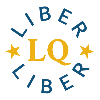The Platformisation of Scholarly Information and How to Fight It
DOI:
https://doi.org/10.53377/lq.13561Keywords:
Open access, Scholarly communication, Rights retention, Copyright reform, Research assessment, PlatformisationAbstract
The commercial control of academic publishing and research infrastructure by a few oligopolistic companies has crippled the development of open access movement and interfered with the ethical principles of information access and privacy. In recent years, vertical integration of publishers and other service providers throughout the research cycle has led to platformisation, characterized by datafication and commodification similar to practices on social media platforms. Scholarly publications are treated as user-generated contents for data tracking and surveillance, resulting in profitable data products and services for research assessment, benchmarking and reporting. Meanwhile, the bibliodiversity and equal open access are denied by the dominant gold open access model and the privacy of researchers is being compromised by spyware embedded in research infrastructure. This article proposes four actions to fight the platformisation of scholarly information after a brief overview of the market of academic journals and research assessments and their implications for bibliodiversity, information access, and privacy: (1) Educate researchers about commercial publishers and APCs; (2) Allocate library budget to support scholar-led and library publishing; (3) Engage in the development of public research infrastructures and copyright reform; and (4) Advocate for research assessment reforms.
Downloads

Downloads
Published
Issue
Section
License
Copyright (c) 2023 Lai Ma

This work is licensed under a Creative Commons Attribution 4.0 International License.





